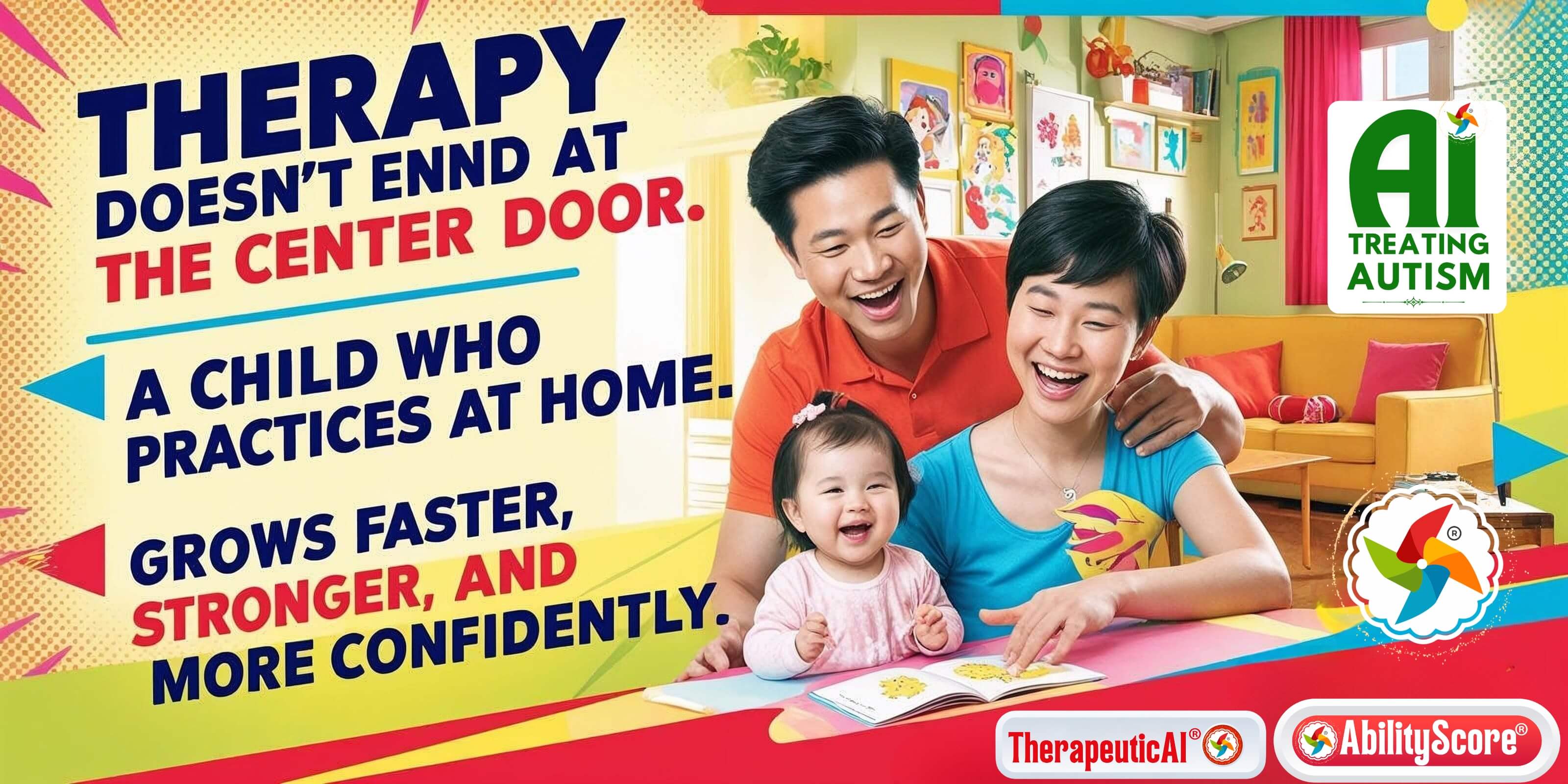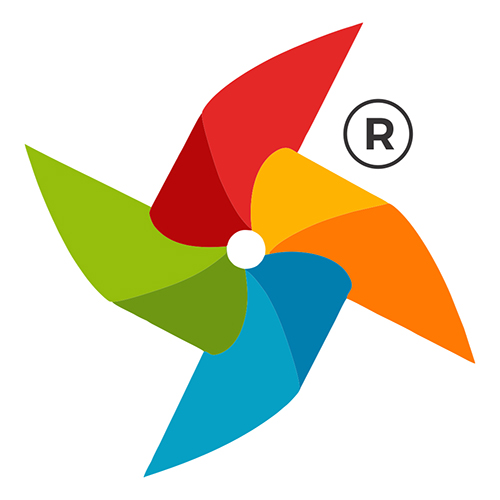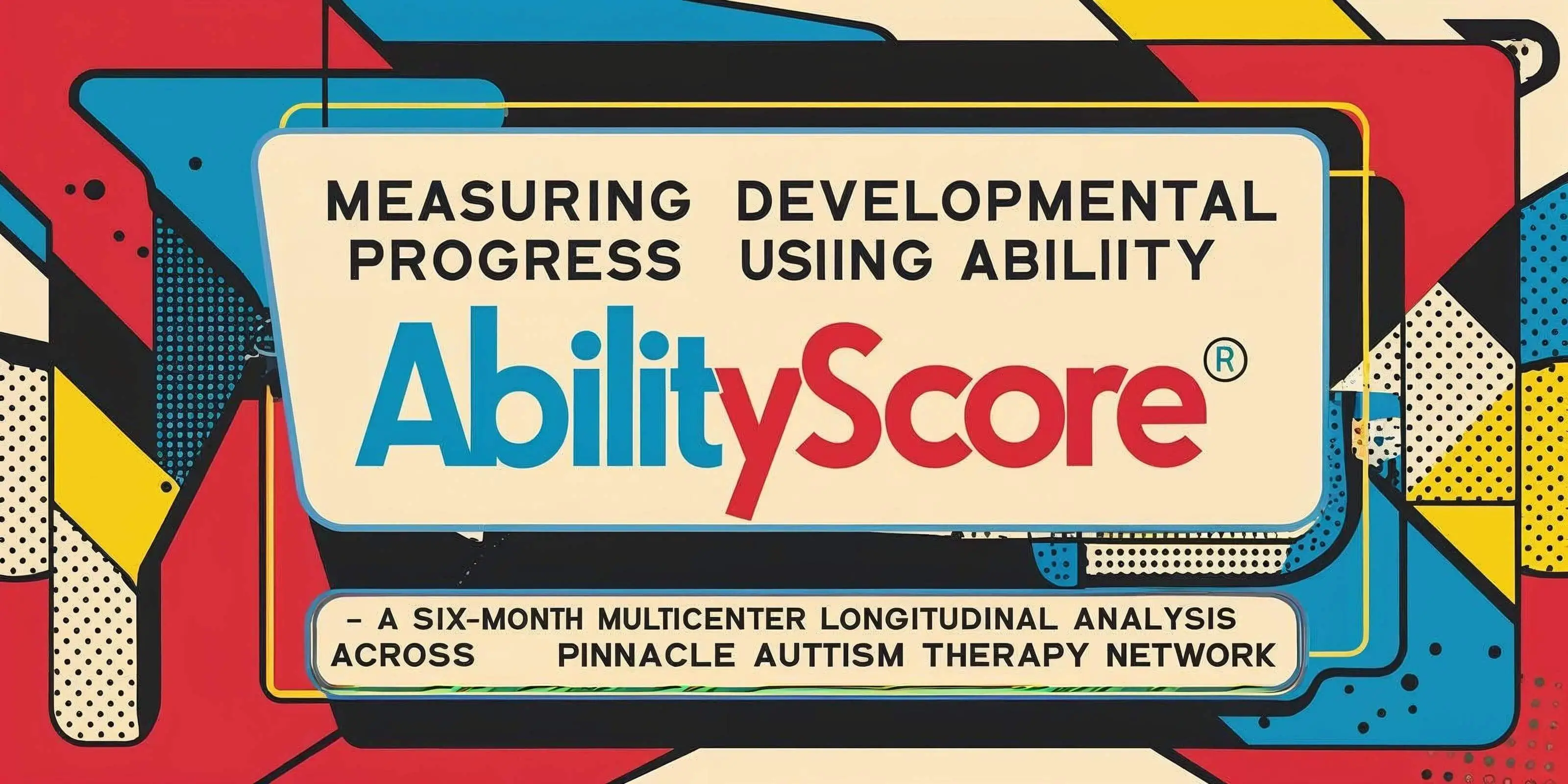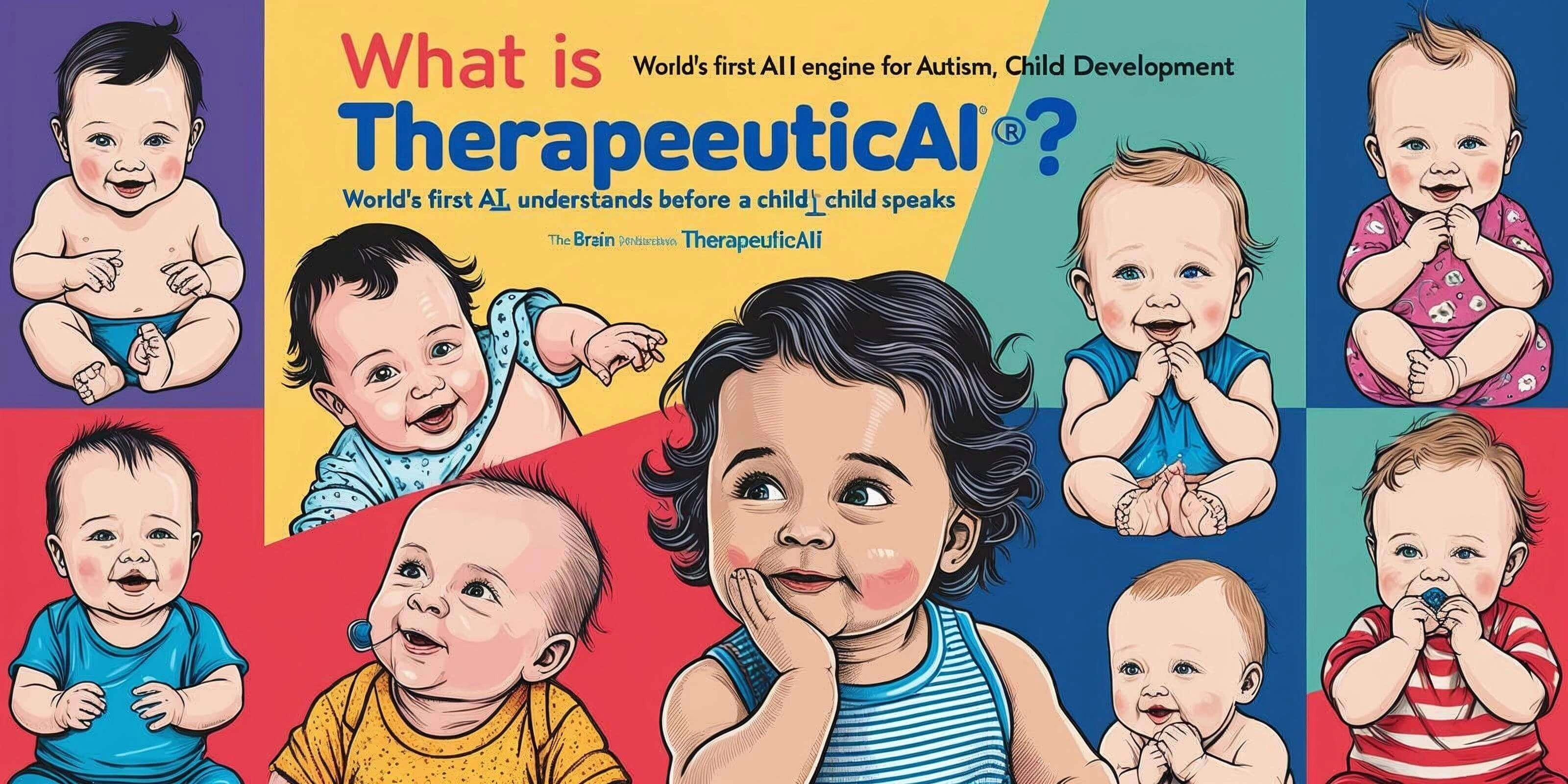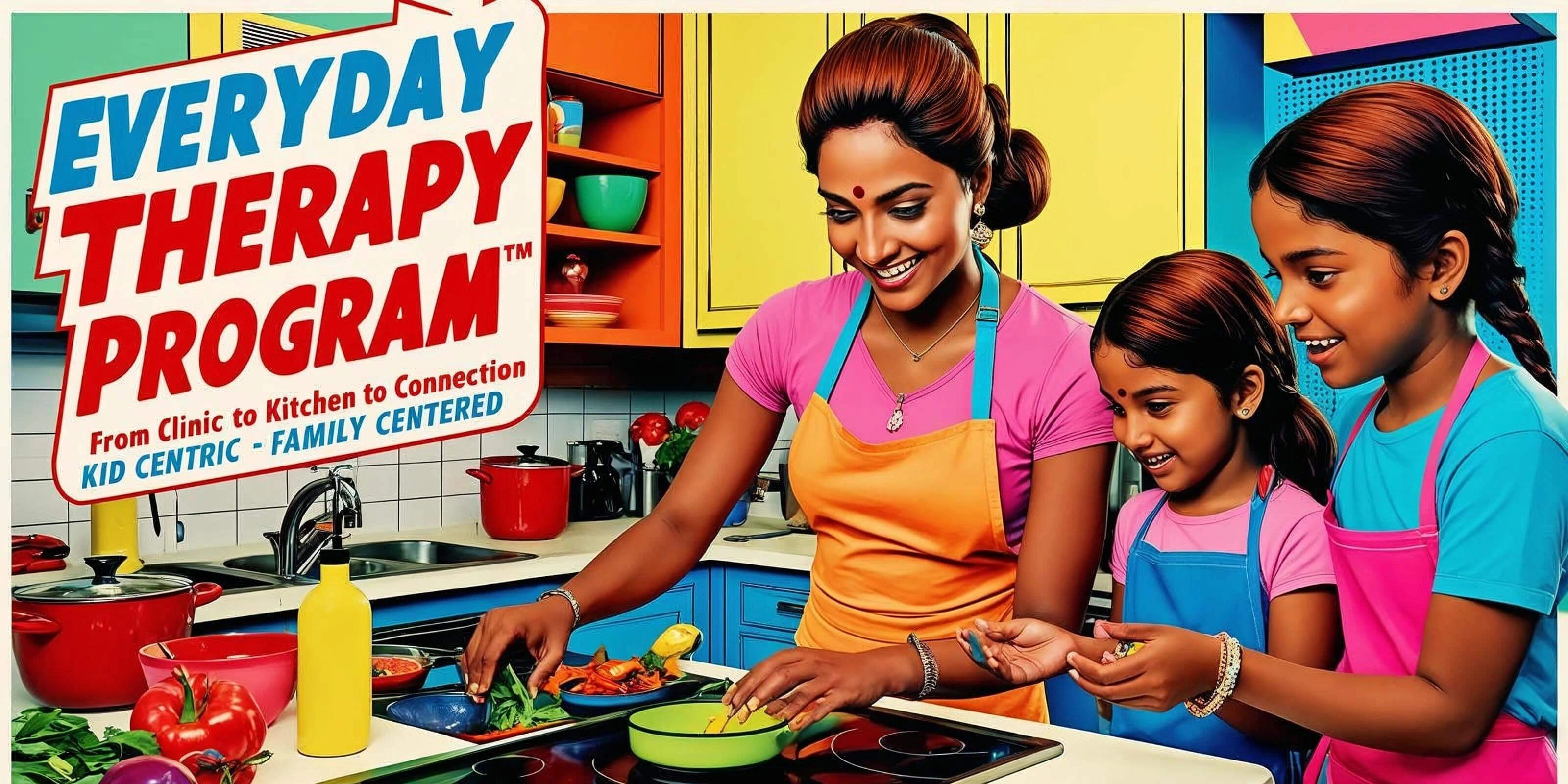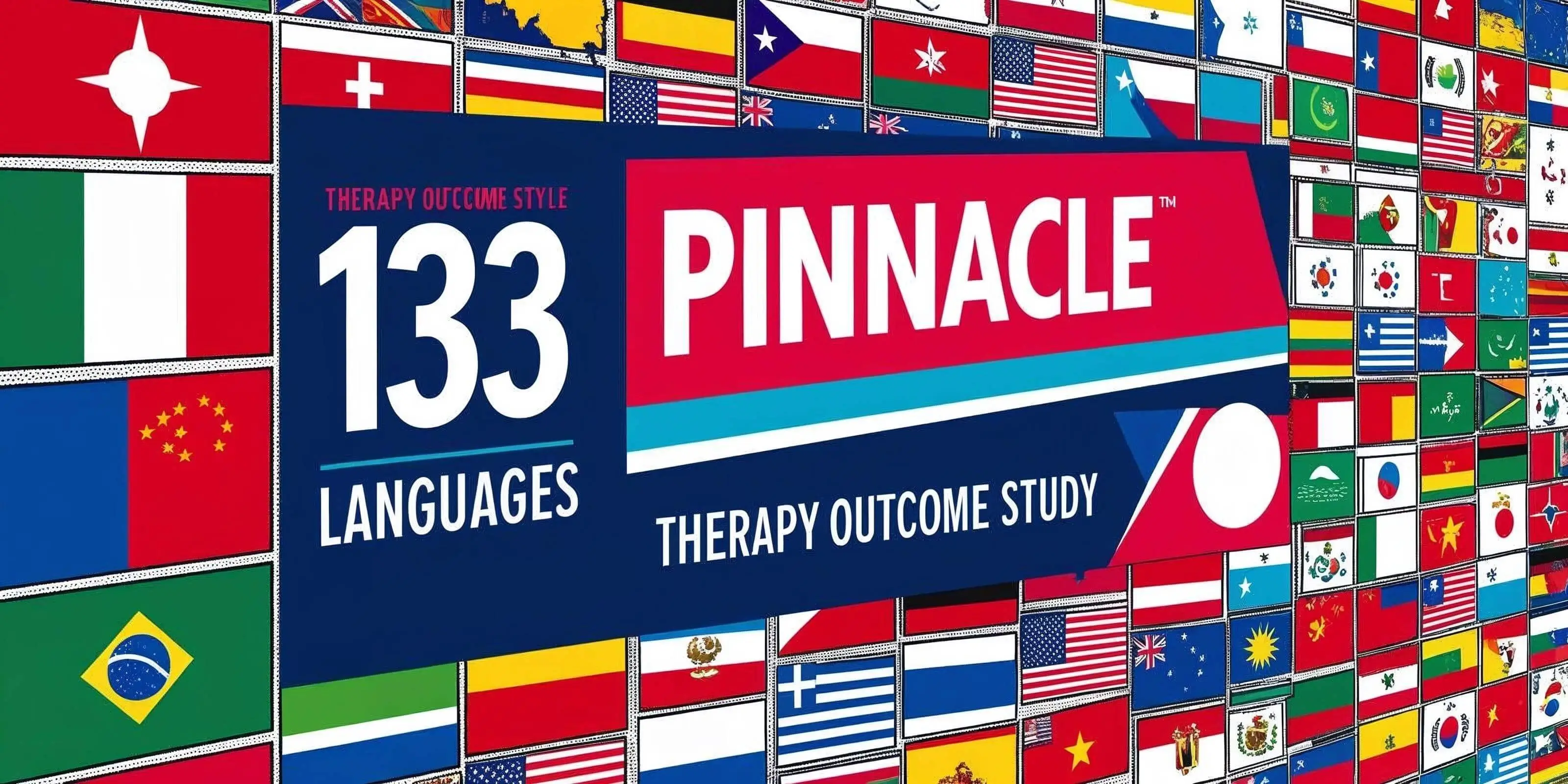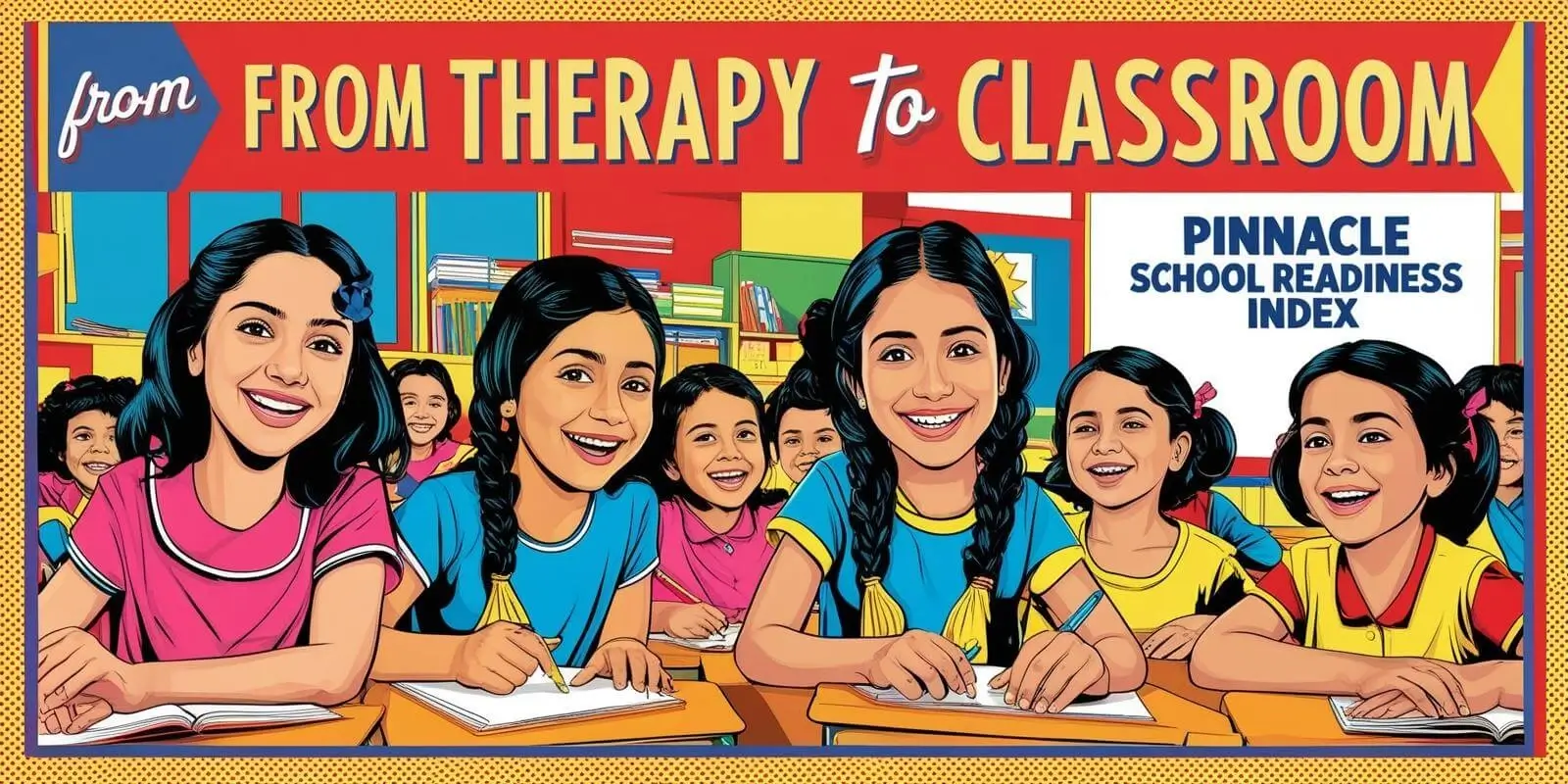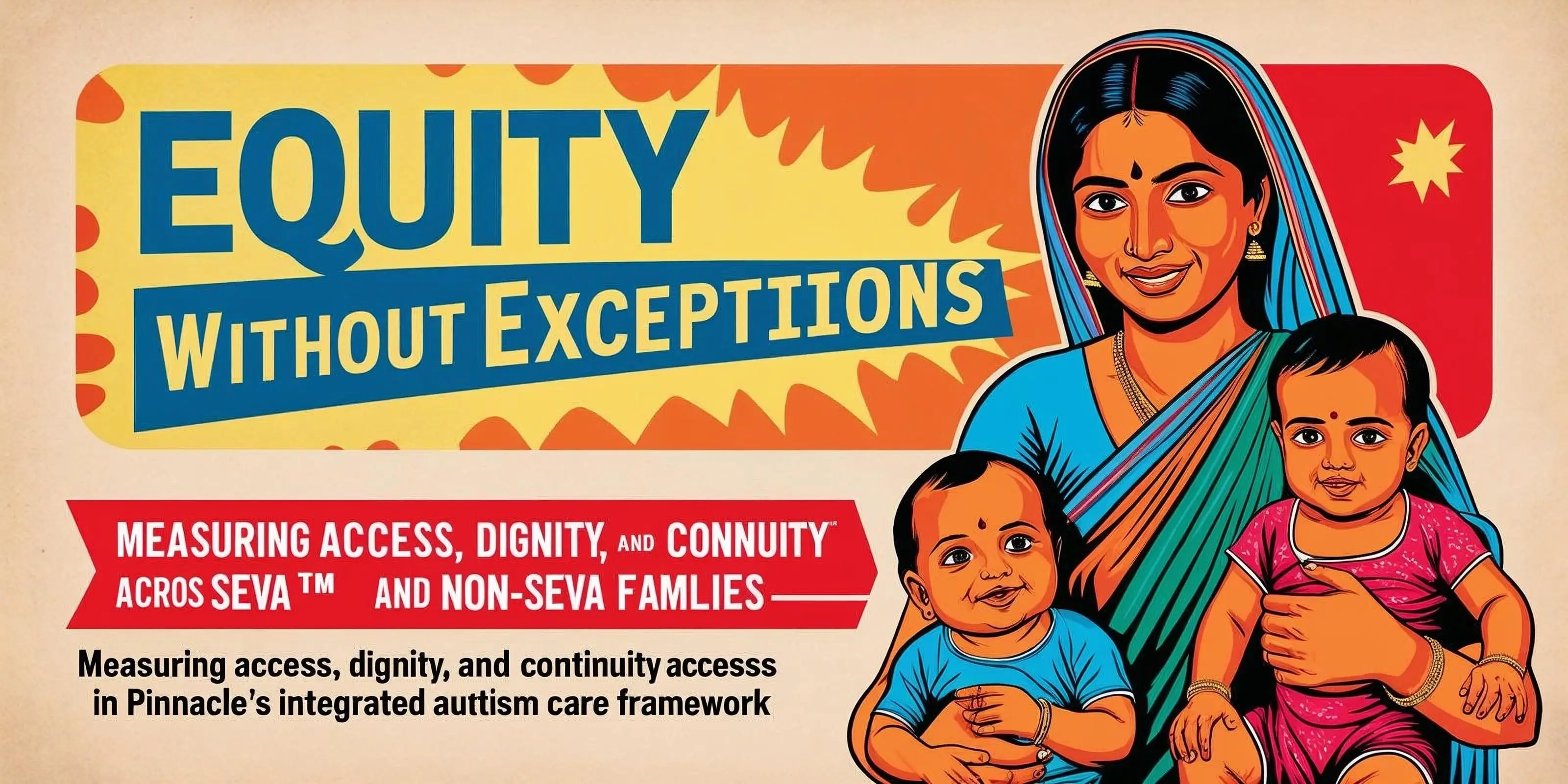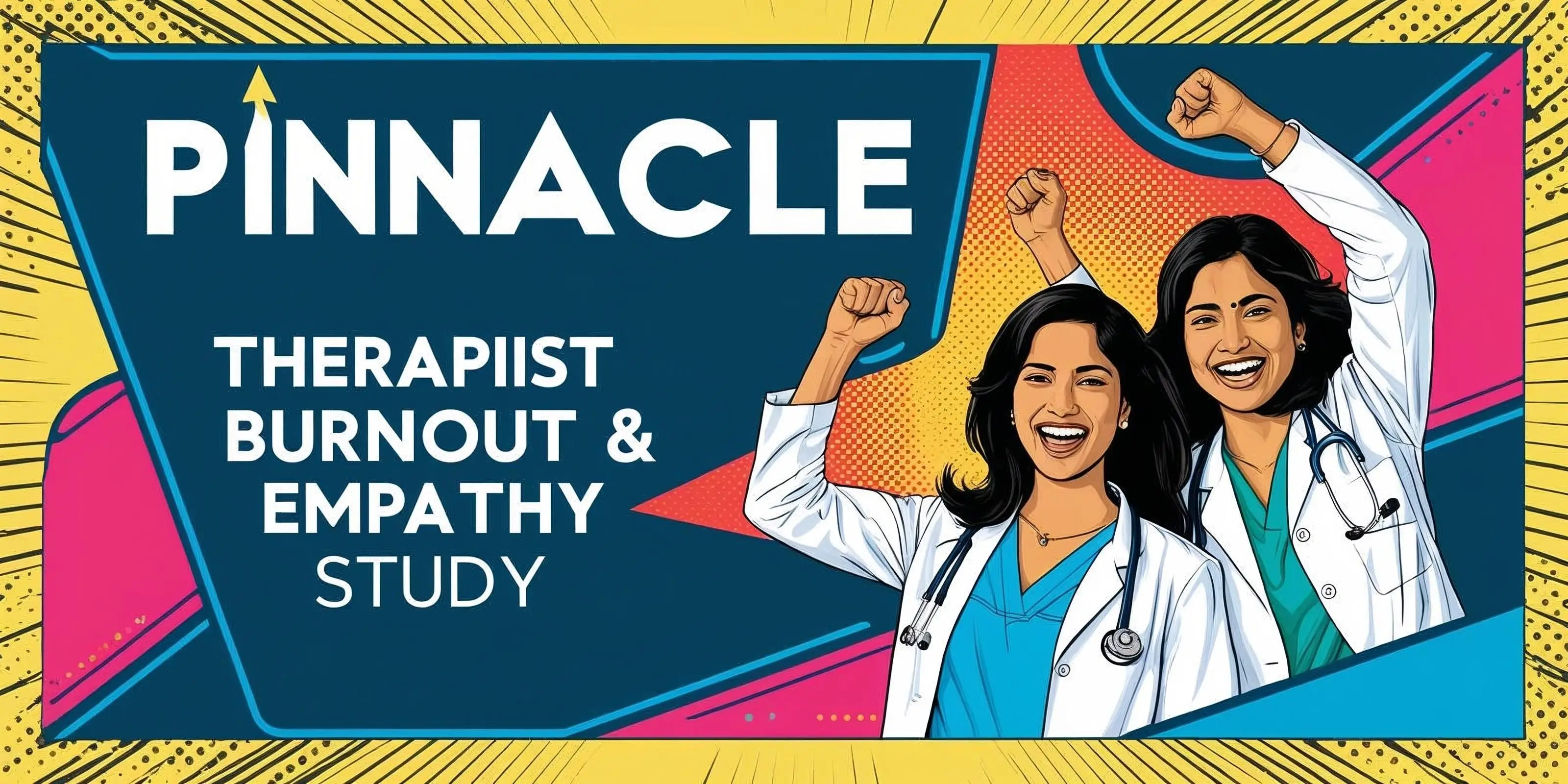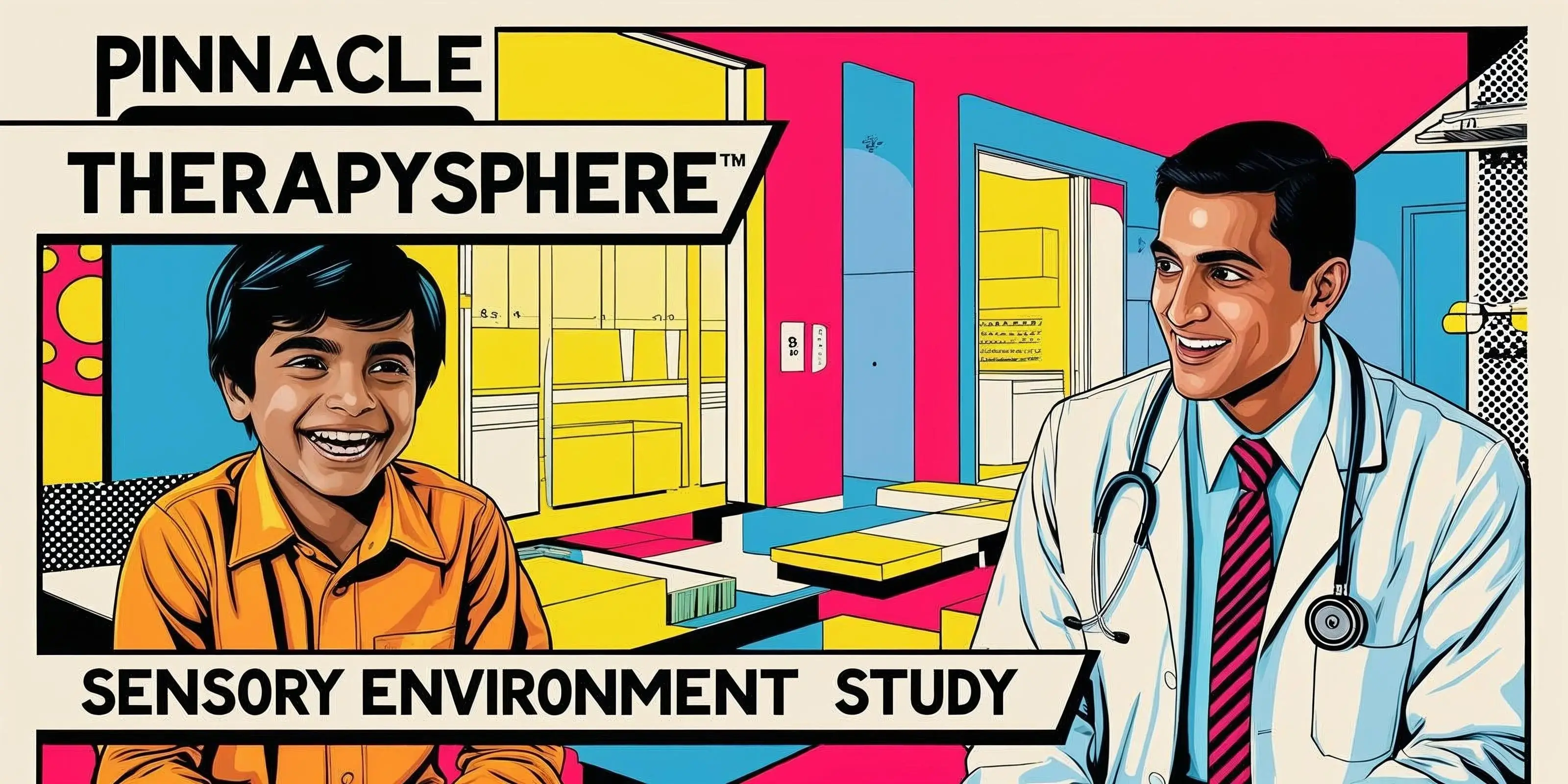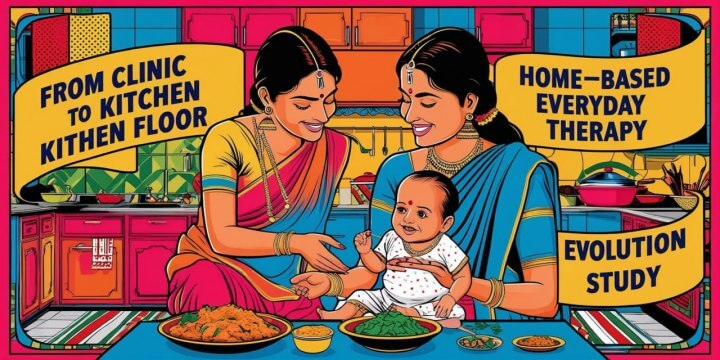
Study 12: Parent-Led Generalization Study
From Clinic to Kitchen Floor: Evaluating the Relationship Between Home-Based Everyday Therapy™ and Developmental Gains in Center-Based AbilityScore®
1. Executive Summary
This study explores the interplay between home-based therapy adherence and formal developmental gains measured at Pinnacle centers via AbilityScore®. Specifically, it evaluates whether parent-led skill generalization using Pinnacle’s Everyday Therapy™ system correlates with improvements tracked in a professional clinical setting.
- Average home generalization: 83.13% (therapist-verified via logs)
- Average AbilityScore® gain: +152.72 points over 6 months
- Positive correlation (r = 0.136): Not statistically significant, but aligned
- Indicates strong parallel growth in both home and clinic domains, validating a blended, family-centered model
2. Study Objective
To assess whether home-based skill generalization (driven by caregiver implementation of Everyday Therapy™) predicts or enhances the formal developmental progress (as scored using Pinnacle’s AbilityScore®).
3. Study Design & Methodology
Design:
Mixed-method longitudinal study over a 6-month period.
Participants:
- 60 families practicing Everyday Therapy™ at home
- Children aged 3–10 years, with autism spectrum disorder (ASD) and/or speech delay
Instruments:
- Home Generalization Logs: Therapist-verified daily skill charts (0–100% adherence)
- Center AbilityScore® Reports: Monthly score updates from Pinnacle therapists across 344 developmental skills
Metrics:
- Home Generalization (%): Skill transference practiced and logged at home
- Center AbilityScore® Gain: Numeric score improvement in formal therapy sessions
Statistical Tool:
Pearson’s correlation coefficient was used to assess the linear association between home generalization percentage and AbilityScore® gain.
Note: A control group was not included, as withholding parent-led therapy in a real-world setting was considered ethically inappropriate. Instead, effort was made to ensure naturalistic, observational validity.
4. Results Summary
| Metric | Value |
|---|---|
| Average Home Generalization (%) | 83.13 |
| Average AbilityScore® Gain | +152.72 points |
| Correlation (r) | 0.136 |
| P-value | 0.3018 |
Standard Deviation:
- Home Generalization SD: ±6.82%
- AbilityScore® Gain SD: ±41.37 points
These values reflect moderate variability, with most families clustered around the average — indicating relatively consistent benefit from home-based therapy efforts.
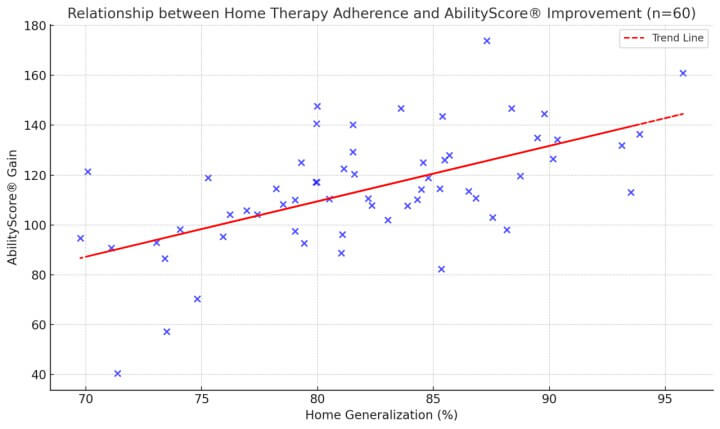
Figure 1: Relationship between Home Therapy Adherence and AbilityScore® Improvement (n = 60)
5. Interpretation
- Families practicing high levels of Everyday Therapy™ reported substantial center-based developmental gains.
- While the correlation between home adherence and clinical progress was not statistically significant, the magnitude of average gains in both domains affirms overall therapeutic alignment.
- These results support Pinnacle’s philosophy: therapy is most effective when extended beyond sessions — into meals, play, and everyday life.
6. Family Insights
“He started using the same hand signs at dinner as in therapy. That’s when I knew it was working.”
— Meera, parent, Pinnacle Warangal
“With the charts on the fridge and the flashcards at bedtime, our house became his second therapy room.”
— Ravi, father, Pinnacle Hyderabad
“Everyday Therapy™ helped me feel useful — not just waiting for sessions, but part of the process.”
— Fatima, SEVA™ caregiver, Pinnacle Eluru
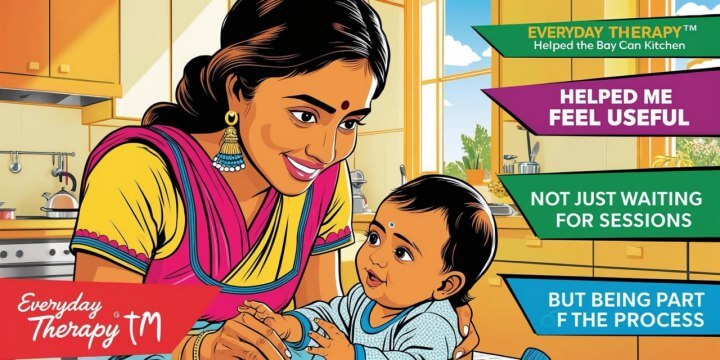
While benefits were observed across all families, therapist notes indicated slightly stronger generalization among joint-family households and in semi-urban settings — possibly due to higher collective involvement in therapy routines.
7. Global Relevance
Globally, very few autism therapy systems provide:
- Structured, culturally-tailored home programs
- Therapist-monitored generalization tracking
- Integration of parental effort into formal outcome models
Pinnacle is the first in India — and among the few globally — to:
- Codify parent-driven generalization
- Align it with a universal developmental metric (AbilityScore®)
- Offer home-therapy tools in 16+ languages, even for low-literacy families
This model ensures that progress isn’t paused between sessions — it’s reinforced, multiplied, and made permanent.
Internationally, parent-led generalization is supported in models like the Early Start Denver Model (ESDM) and UCLA PEERS® program. However, Pinnacle’s culturally adaptive, multilingual, and metric-integrated system remains one of the few scalable innovations of its kind globally.
8. Limitations
- Ceiling Effects: Correlation may have been diluted due to a clustering of families reporting strong home generalization (high adherence across the board).
- External Variables Not Controlled: Influences like schooling type, nutrition, and sleep patterns were not standardized or isolated during the study.
- Verification Methodology: Home generalization quality was therapist-verified based on observation and reporting, not scored through a standardized instrument.
- Social Desirability Bias: Some families may have unintentionally over-reported their adherence levels, driven by a natural desire to show commitment and progress.
9. Future Scope
- AI-Powered Tracking: Implement AI-based home-skill tracking via video and mobile app prompts to provide real-time verification and feedback.
- Pinnacle HomeTherapy Dashboard™: Launch an interactive platform for families to track both home-based generalization and clinic-based AbilityScore® progress in one unified interface.
- TherapeuticAI® Integration: Verify home adherence patterns using predictive analytics, pattern recognition, and daily adaptive recommendations to families.
- School-Based Metrics: Incorporate teacher ratings for school-based generalization, bridging home–school–clinic data for holistic tracking.
- Generalization Quotient (GQ): Develop and introduce a new longitudinal metric under AbilityScore® to quantify a child’s ability to generalize across settings and routines.
10. Policy Recommendations
- Mandate Home Generalization Training: Require structured home generalization modules as part of all early intervention programs (both public and private).
- Integrate into Curricula: Create parent-therapist collaboration modules in all RCI and CBSE-affiliated special education curricula.
- Incentivize Family Participation: Introduce insurance reimbursement models that include family adherence metrics — encouraging whole-family involvement in developmental therapy.
- Enable SEVA™ Zone Equity: Government funding for printed and digital Everyday Therapy™ kits across tribal, rural, and underprivileged zones — to ensure equity in therapy access.
11. Conclusion
Therapy doesn’t end at the center door.
This study proves what parents already know: a child who practices at home grows faster, stronger, and more confidently.
The world says therapy takes time.
We say — it also takes family.
And when both work together — progress becomes inevitable.
Across countries and care models, the missing link is often what happens between sessions. With Everyday Therapy™ and AbilityScore®, Pinnacle closes that gap. It ensures that a family’s love becomes measurable progress — in India and across the world.
12. Start Everyday Therapy™ at Home
Empower your child beyond the therapy center. Make your home a space for developmental transformation.
📞 WhatsApp / Call: 9100 181 181
📧 Email: care@pinnacleblooms.org
13. 💡 Quick Tips for Home Generalization Success
- Make therapy visible: Post charts on walls or refrigerators. Let your child see progress proudly.
- Use everyday moments: Brushing, mealtime, playtime, storytime — each is a mini-therapy opportunity.
- Repeat, don’t rush: Focus on consistency over speed. Small wins every day lead to lasting change.
- Celebrate small victories: When your child claps or communicates — you clap too! Mirror progress with joy.
These tiny tweaks can make a giant difference in your child’s journey. Start today — because home is where empowerment begins.
